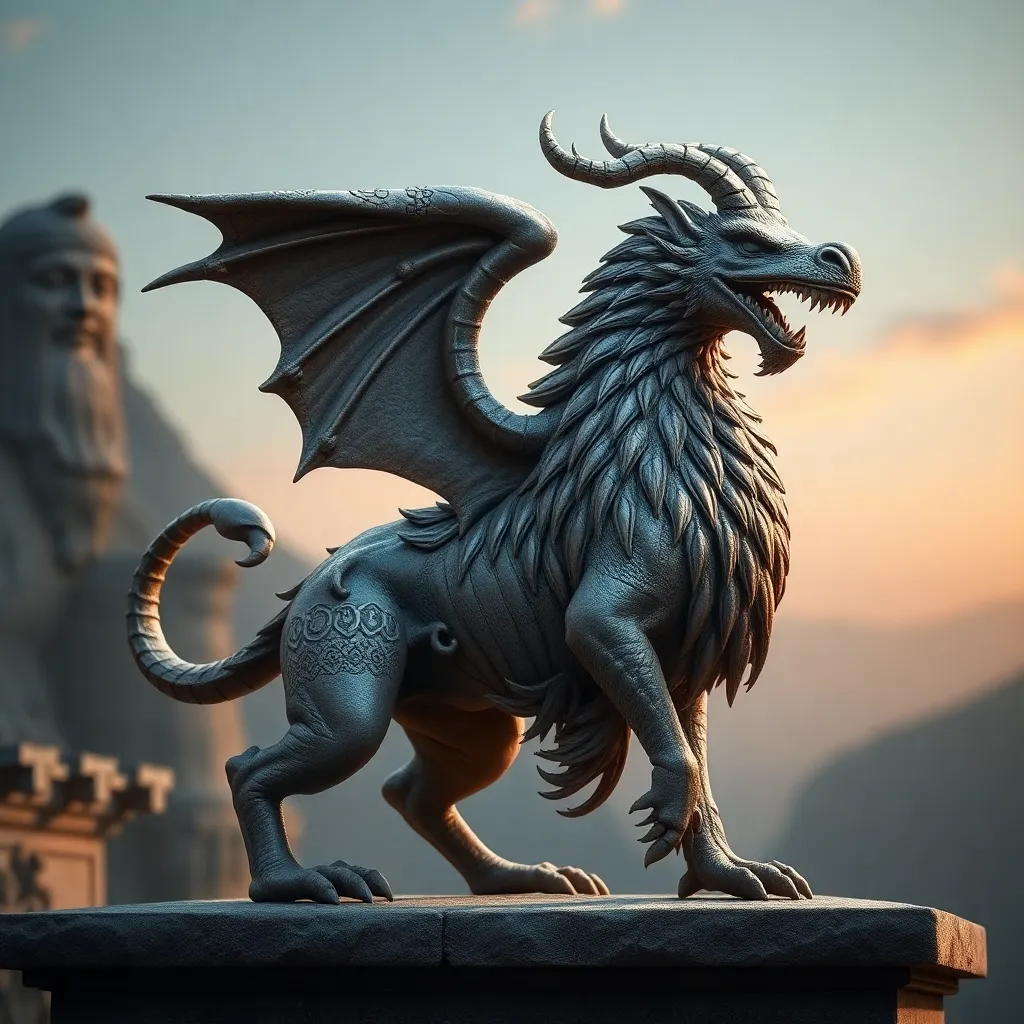The Role of Mythological Creatures in Greek Mythological Scholarship
I. Introduction
Mythological creatures in Greek mythology encompass a diverse array of beings that reflect the imagination and values of ancient Greek society. These creatures range from gods and demi-gods to monsters and hybrids, each serving unique roles within the myths and legends that shape Greek culture.
The study of these beings is crucial for understanding the broader implications of Greek mythology, as they often embody human traits, societal norms, and philosophical questions. This article will explore the historical background, classification, cultural significance, modern scholarship, interdisciplinary connections, and challenges faced in the study of Greek mythological creatures.
II. Historical Background of Greek Mythology
The origins of Greek mythology can be traced back to the early Greek civilization, where oral traditions began to crystallize into written texts. These myths were not merely entertainment; they served to explain natural phenomena, cultural practices, and human behavior.
Key texts, such as the epics of Homer (the Iliad and the Odyssey) and Hesiod’s Theogony, provide foundational narratives that include a plethora of mythological creatures. These works have been essential in preserving and transmitting the stories of gods, heroes, and monsters throughout history.
Mythological creatures held significant importance in ancient Greek culture, often functioning as moral exemplars or cautionary figures in stories that communicated societal values and beliefs.
III. Classification of Mythological Creatures
Mythological creatures can be broadly classified into several categories, each with distinct characteristics:
- Gods: Immortal beings with control over various aspects of the world, e.g., Zeus, Hera.
- Demi-gods: Offspring of gods and mortals, possessing extraordinary abilities, e.g., Heracles.
- Monsters: Often antagonistic beings representing chaos, e.g., the Cyclopes, the Minotaur.
- Hybrids: Creatures that combine features of different beings, e.g., the Sphinx, Centaurs.
Notable examples of mythological creatures include:
- Cerberus: The three-headed dog guarding the entrance to the Underworld.
- Medusa: A Gorgon whose gaze turns people to stone, symbolizing fear and danger.
- The Minotaur: A half-man, half-bull creature that embodies human savagery and the beast within.
The symbolic meanings associated with these creatures often reflect deeper themes, such as the struggle between order and chaos, humanity’s fears, and the nature of divinity.
IV. Mythological Creatures as Cultural Symbols
In Greek mythology, creatures often represent human traits and societal values. For example:
- Hubris: Many myths caution against excessive pride, often personified in monstrous figures.
- Heroism: Demi-gods like Heracles exemplify the struggle against adversity and the pursuit of greatness.
Mythological creatures also play a significant role in moral and ethical teachings. Their stories convey lessons about virtue, vice, and the consequences of human actions.
Furthermore, the influence of these creatures extends beyond ancient texts into art, literature, and philosophy, inspiring countless works throughout history and prompting philosophical inquiries into human nature and morality.
V. Modern Scholarship and Interpretation
The evolution of scholarship on mythological creatures has seen significant changes over the years. Early interpretations often focused on literal readings of texts, whereas contemporary scholarship employs a variety of theoretical frameworks.
Current theories in Greek mythological studies include:
- Structuralism: Examining the underlying structures and patterns in myths.
- Post-colonial theory: Analyzing myths through the lens of colonialism and cultural exchange.
- Feminist criticism: Exploring the roles of female mythological figures and their representations.
Recent case studies have focused on specific creatures, revealing insights into their cultural significance and the evolving interpretations of their roles within mythology.
VI. Interdisciplinary Connections
The study of Greek mythology is inherently interdisciplinary, connecting with various fields, including:
- Psychology: The exploration of Jungian archetypes and how mythological figures represent collective unconscious themes.
- History and archaeology: Investigating the historical contexts of myths and their impact on ancient civilizations.
- Contemporary culture and media: The adaptation of mythological creatures in films, literature, and popular culture, showcasing their enduring relevance.
VII. Challenges in Mythological Scholarship
Despite the wealth of material, scholars face several challenges in the study of Greek mythology:
- Interpretation and translation: The ambiguity and complexity of ancient texts make accurate translation and interpretation difficult.
- Origins and meanings: Debates continue regarding the origins of specific creatures and their intended meanings within the cultural context.
- Modern perspectives: Contemporary viewpoints can sometimes distort the original significance of ancient beliefs and practices.
VIII. Conclusion
In summary, mythological creatures play a pivotal role in Greek mythological scholarship, serving as lenses through which we can explore ancient beliefs, cultural values, and human experiences. The ongoing study of these beings promises to yield further insights into the complexities of Greek mythology and its relevance in today’s world.
Future research directions may include deeper explorations of the intersections between mythology and other disciplines, as well as the continued examination of how these ancient creatures influence contemporary narratives. The legacy of Greek mythological creatures endures, inviting us to reflect on our own humanity and the timeless stories that connect us across cultures and epochs.




